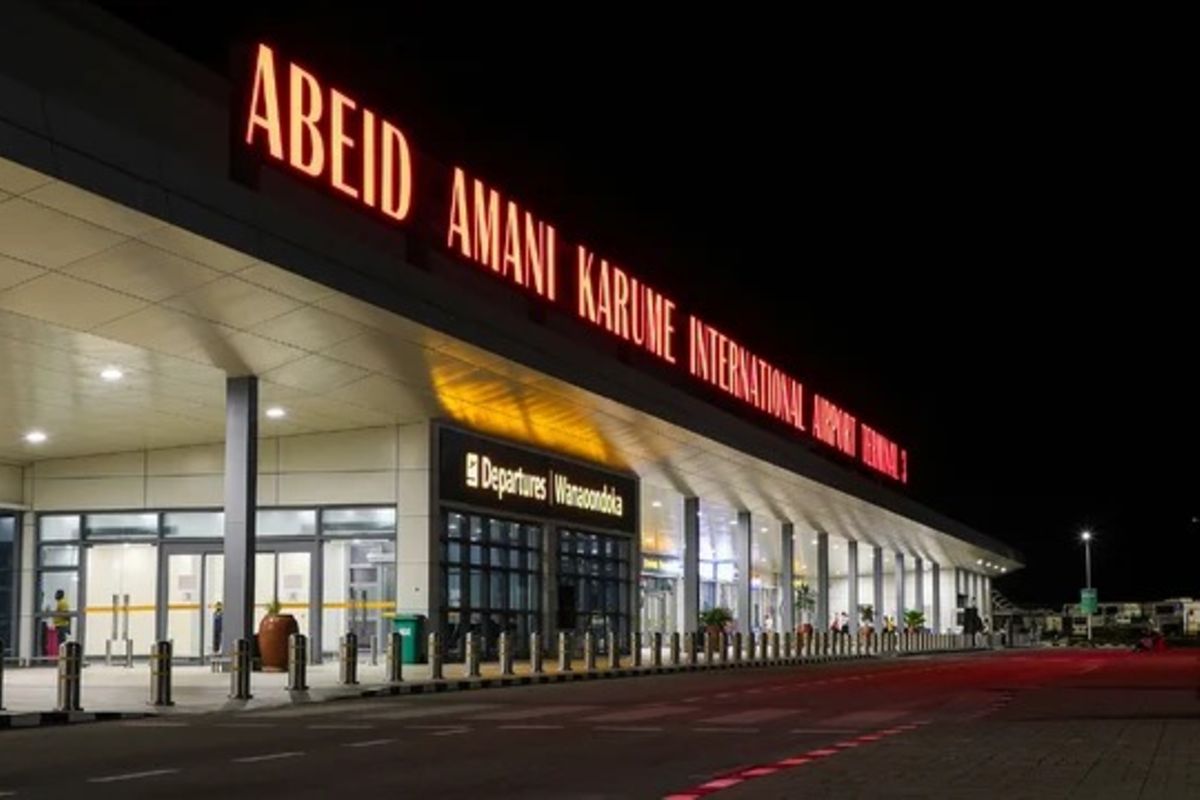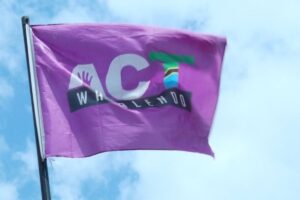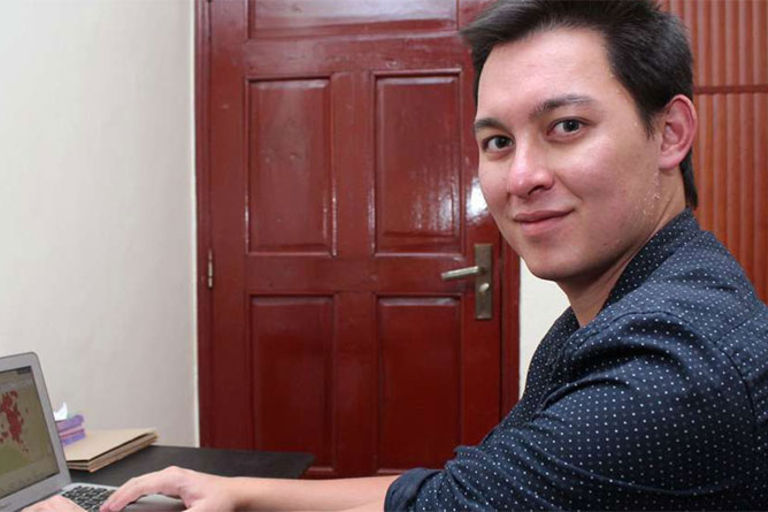Boss Talk
Zanzibar picks Kenyan company Wasoko to make “Silicon Island”
Zanzibar is eyeing rising investor interest in Africa’s business-to-business (B2B) e-commerce start-ups to attract funding and tech talent and to build its profile as an island tech hub.
It has picked Wasoko, a B2B e-commerce platform that connects informal retailers to manufacturers of consumer goods previously headquartered in Kenya, as its first anchor company and official “private ambassador”.
The semi-autonomous group of islands off the coast of Tanzania does not feature in global startup ecosystem rankings but the move by its government is seen as deliberate positioning to make “Silicon Zanzibar” Africa’s next destination for talent and innovation. The region’s leadership says it will engage with entrepreneurs to ensure that the environment is conducive to tech startups.
“We are excited to officially partner with Wasoko and other tech companies coming to Zanzibar to co-create policies and initiatives that will transform Zanzibar into a leading tech centre for the African continent,” said Zanzibar Minister of Investment and Economic Development, Mudrick Soraga.
Soraga said the government will streamline the issuance of work visas to skilled tech workers and provide an open and enabling environment for all tech companies to operate in this world-renowned tourism destination.
Tanzania’s largest city and financial hub, Dar es Salaam, features in StartupBlink’s global ranking of 1,000 cities at position 583 after improving its ranks by 141 places over the past year alone. In East Africa, the city is ranked sixth.
The Financial Times named Wasoko Africa’s fastest growing company in May, following a 125 million US dollar fundraising in March – the largest venture fundraising for a non-fintech startup on the continent. The startup is now valued at 652 million US dollars, inching closer to becoming East Africa’s first “unicorn” with a billion-dollar valuation.
The development of Wasoko’s Innovation Hub on Zanzibar Island is expected to drive more funding to the area, a nascent market as investors pile into African startups that leverage digital platforms to make it easier for informal retailers to access goods from distributors and suppliers.
” As a Pan-African tech company, Wasoko has been looking for a location where we can bring together the best talent from across the continent and beyond to innovate and develop new products and services for our customers,” said CEO and Founder at Wasoko, Daniel Yu.
Wasoko founder on building Africa’s fastest growing company in Nairobi
Friday November 25 2022
Software developer Daniel Yu saw a gap in manufacturers’ distribution chains and decided to fix it — building a platform to help retailers order goods.
What the US-born techie started while spending in Egypt has grown into the fastest-growing company in Africa, according to the inaugural FT annual ranking of Africa’s fastest-growing companies.
The Wasoko founder and CEO spoke to the Business Daily about Wasoko’s meteoric rise, his decision to set up in Kenya after exploring many different markets and his view of the tech industry.
***
When you started, did you think you would get to where you are today?
Absolutely not. The original idea was just something that I came up with as a software developer when I was spending time in Egypt. I built this basic solution and was reaching out to different suppliers across many different markets to run a pilot.
And when I got the invitation and interest from some suppliers in Kenya and I showed up, even then I don’t think that I envisioned this kind of growth and traction.
Every day used to be, very exciting, just kind of wake up and get everything going. But it’s still just the beginning and definitely we still have a lot more for this project.
Why did you pick Nairobi and not Egypt?
So interestingly, the interest and excitement from the Kenyan manufacturers and suppliers and their responses when I reached out to them about the technology that I had built is what brought me here.
Maybe it’s because of Kenya’s advanced tech adoption, especially mobile money.
The population was very comfortable with mobile money transactions, I mean sending money with just USSD. Our initial technology also used SMS, basic mobile phone systems for ordering supplies.
The suppliers instantly understood the concept, whereas in other markets this idea of using the phone to order goods was something quite strange.
What challenges did you face setting up?
Like every startup, there are some things that you originally envision that don’t exactly go as planned. And in our case, there was a significant shift that we had to make in our operations from that original idea, which was just being a system only.
What we realised was that the manufacturers were also struggling a lot with the last mile. And so, what we needed to do was not just provide the system, but also step in and organise the logistics.
My background is in software development and so we had to find people to help us with this and actually, we were able to figure that out with time.
ALSO READ: BOSS TALK: Narendra Raval on growing from a small trader to tycoon
Did you find it difficult to hire talent in Kenya?
I would say I did not, certainly not in the early days. I think we were able to find everyone that we needed to get the initial operations set up.
We had a great group of young Kenyans, many of whom are still with us today and have really grown up taking senior roles within the team. I would not say that was too much of a barrier.
What was Wasoko’s first major milestone?
I think the first major milestone was launching the pilots in Kenya back in 2015. The first attempts were failures because the idea that we originally started with didn’t work.
We had to adjust the model to include doing our own logistics. And you could say our second milestone was when we pivoted to doing our fully integrated logistics model.
From there we figured out the operational model that could scale and that would really drive growth in customer demand.
Our third milestone was raising our seed round of funding in 2018. So, it took us a little while to get there.
Being named the fastest-growing company in Africa by the Financial Times was definitely a huge honour.
It was something that we didn’t expect. Prior to that, as well as the funding we received earlier this year, a lot of people did not know who we are.
Daniel Yu, CEO and founder at Wasoko, plans to relocate to Zanzibar as saviour of the island’s ‘silicon future’.
What was the biggest sacrifice you had to make to start Wasoko?
I would say the biggest sacrifice that I personally made was moving away from my home country. But when I think of it, I wanted to live in different countries and different places.
There are a few things that I wanted to do and hopefully still will do but I’ve kind of put them on hold. I wanted to travel and see different places on my own, not for business. I haven’t been able to do that because straight from the university I got involved with Wasoko.
What has been the most challenging thing since starting?
I knew how to code the system but I didn’t know how to set up a warehouse and manage it. We also didn’t have a lot of funds. This was a big risk to take and we were somehow not sure that these operations would actually lead to success.
Why are most African startups failing?
You could say that’s an overly dramatic characterisation of what’s happening. The reality of startups is nine out of 10 startups fail. That’s US data primarily. My guess is that it’s actually fewer in Kenya or Africa, maybe seven out of 10. It’s like with football.
Every time the striker kicks the ball towards the net, most of the time it does not go in. The best strikers only score 20-30 per cent of the time.
If you want to start a successful business, it’s actually quite easy to pick an existing business model. But a startup is a concept, which is fundamentally trying to do something that has not been done before.
What is the secret of your success?
The first thing is luck. So, we would not be here today if a few critical things had not gone our way. Even more recently, you can see that we received funding in February just before the big change in the market.
If maybe we had tried to fundraise six months later, we would not have had the same outcome. The same goes back to our first seed round [2018]. We had an unfortunate situation where an initial investor ended up collapsing because of an internal scandal.
But right before we ran out of money, we managed to find a different investor. I do think that part of that though is perseverance. It’s about not giving up and being resourceful. If you run into a wall, you don’t stop and go home, you find creative ways to go sideways and around it to find a door.
Share this news
This Year’s Most Read News Stories

Concerns mount over Zanzibar new $44 travel insurance fee
Tour operators, hoteliers, tourists, and tourism stakeholders are raising alarms over Zanzibar’s new mandatory $44 travel insurance fee, set to take effect on September 1.Continue Reading

New lawsuit as Zanzibar airport controversy continues
Another company joins the list as they file a petition challenging the exclusive rights granted to Dnata by Zanzibar Airports Authority.Continue Reading

ACT Unaware of Mwinyi’s joint committee on Zanzibar reforms
Opposition party ACT Wazalendo has said it is not aware of a special committee on reforms and has directed the party’s leadership to follow up on the decision of the Central Committee which directed its leaders to meet with President Hussein Ali Mwinyi.Continue Reading













